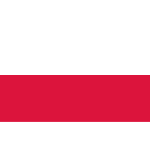
Despite the economic crisis, it has been forecasted that by 2015, up to 900.000 jobs for ICT practitioners will stay unfilled in the EU. It is indeed a paradox that, at a time when unemployment rates exceed 10%, Europe is still not producing enough digitally skilled professionals to fill thousands of upcoming vacancies.
But which are precisely the skills that are so much in demand? Is there a "gender gap" in the digital skills needed to access these jobs? And what can telecenters do to help women accessing these jobs? These were the questions the group tried to answer during their launch session in Malta.
The discussion was moderated by Lize De Clercq and panel members were Elena Lanzoni (Interface3, Belgium) and Gordana Stankov (International Aid Network, Serbia).
Martina Mayrhofer (TEB Youth Association, Spain), Elzbieta Dydak (Information Society Development Foundation, Poland) and Laurence Leseigneur (Interface3, Belgium) also joined the discussion and became official members of the working group.
900.000 ICT-related vacancies, you said?
As an introduction to the discussion, Lize De Clercq presented the source of the forecast of 700.000 to 900.000 unfilled vacancies for ICT practitioners in the EU by 2015.
The figures stem from the 2009 eSkillsMonitor and the 2012 Empirica Survey. The Empirica survey was held among CIOs (Chief Information Officers) and HR managers in 8 European countries, who suggested there were 255.000 unfilled vacancies for 'ICT workers' across the EU and this unmet demand could rise by 2015 to between 372.000 and 864.000 vacancies.
"These could be promising figures for the unemployed, but which type of 'ICT workers' are they exactly referring to in this survey?" Elena Lanzoni pointed out during the startup of the panel discussion.
An answer to this question was found on page 9 & 11 of the Empirica publication:
"Of the 255.000 unfilled vacancies in 2011, some 72.000 (28%) were for 'ICT management & business architecture skills' and about 183.000 (72%) for 'Core ICT practitioners' and 'Other ICT technicians'. The projections also suggest that future demand will increasingly focus on higher-level ICT jobs (management, planning & strategy, and ICT development specialists) - and less in the infrastructure-related occupations such as ICT support, delivery and operation".
Is there a gender gap? How can Telecentres address it?
1. Gender gap at the level of ICT usage
At first, the group studied the figures on the male-female gap in computer and internet usage skills from the 2012 report on Digital Competences in the Digital Agenda [5], based on the 2011 EU Community Survey on ICT Usage.
Above figures show that women aged 16-54 tend to outnumber men in the low and medium internet & computer skills, but for the highest level of skills the situation is opposite: more men appear to have high internet & computer skills then women - reaching a male-female gap in computer skills of 16% in the age group of 25-54.
As it has been forecasted that by 2015 90% of jobs will need at least basic computer skills [8], the group members agreed that Telecentres have a very important role to play in adressing the gender gap for women at the level of high skills, both in the age group of 16-24 as in the age group of 25-54.
"Waiting for women and girls to come is no option", said Gordana Stankov from International Aid Network,"Telecentres should organize some targeted activities towards them".
2. Gender gap at the level of higher education
When we look at higher education, the in October 2013 released study Women active in the ICT sector [9] states that out of 1.000 women with a bachelor degree in Europe, only 29 (compared to 92 men) hold a degree in fields related to ICT topics (Maths, Statistics, Computing & Engineering), whilst only 4 eventually work in the ICT sector. This means that women represent only 23% of Europeans with a bachelor degree in fields related to ICT.
Significant differences exist between groups of countries. While in Eastern Europe the number of females undertaking these type of studies is almost double compared to the rest of Europe, the number of males that choose these topics is, just like in the rest of Europe, almost 4 times higher than the number of females.
3. Gender gap at the level of the workforce
As for the workforce, in 2009 the OECD calculated that the share of women in ICT specialist occupations is only 15% for the EU27. Although some differences exist between European countries, in the best scoring country (Lithuania) women still only represent 25% of Lithuanian ICT-specialists.
Elena Lanzoni added: "The OECD figures clearly show how important it is to distinguish between 'working IN the ICT-sector' and 'working AS an ICT-specialist'. Take Estonia: the share of women working in the ICT-sector as a whole is 50%, but it falls back to only 15% for the share of women working as ICT-specialists.
Although there is no well-established definition of what comprises ICT professions, job security of the higher-level ICT jobs is evident, as these are the jobs where the forecasted 700.000-900.000 vacancies are mainly situated.
To gain more insight in the type of jobs related to ICT, the group studied the examples comprised in the graph extracted from the 2009 research Widening Women's Work in Information and Communication Technology:
The group agreed that adressing the gender gap at the usage level is not enough and Telecentres should also play a role in training women for ICT occupations and in addressing the barriers that prevent young girls from taking up a career as ICT specialists.
"At Interface3 we are already doing this" said Elena Lanzoni. "Our core business consists of our 1 year vocational training programmes for unemployed women who wish to become IT Helpdesk Practitioner, Network Administrator, Webmaster or Webapplication Developer. We also organize awareness workshops in secondary schools that include shadowing visits at ICT companies"
Telecentre candidates for best practice replication: Spain & Poland
Martine Mayrhofer joined the gender working group because at TEB Youth Association (Spain) they are worried about reinforcing gender stereotypes because of the role models they currently work with:
"We are working with vulnerable youth that present very high school drop-off rates. We are looking to replicate a gendered approach of coaching & mentoring that can convince & motivate our youngsters about the path they've chosen."
Elzbieta Dydak said she joined the group because at the Information Society Development Foundation (Poland) they haven't yet employed any gender approach in their library activities but would be very interested in finding out more about the results of such an approach.
"It would be interesting to do a gender screening of the Link to the Future meetings we are currently organizing between young successful professionals and secondary schools students", she said.
UniteIT Gender Equality workgroup launched!
The panel discussion also formed the offical launch of the Gender Equality workgroup of the UniteIT project. Through online discussion and webinars, members of this group will:
- Identify the current state of the gender gap in ICT in Europe.
- Identify the barriers that result into this gender gap.
- Identify best practices, strategies and promising programs that address those barriers.
- Guide case-studies of Telecentres that want to take up action by replicating best practices.
- Identify other changemakers and formulate recommendations for change.
For the moment, access to this group is by acceptance only.





